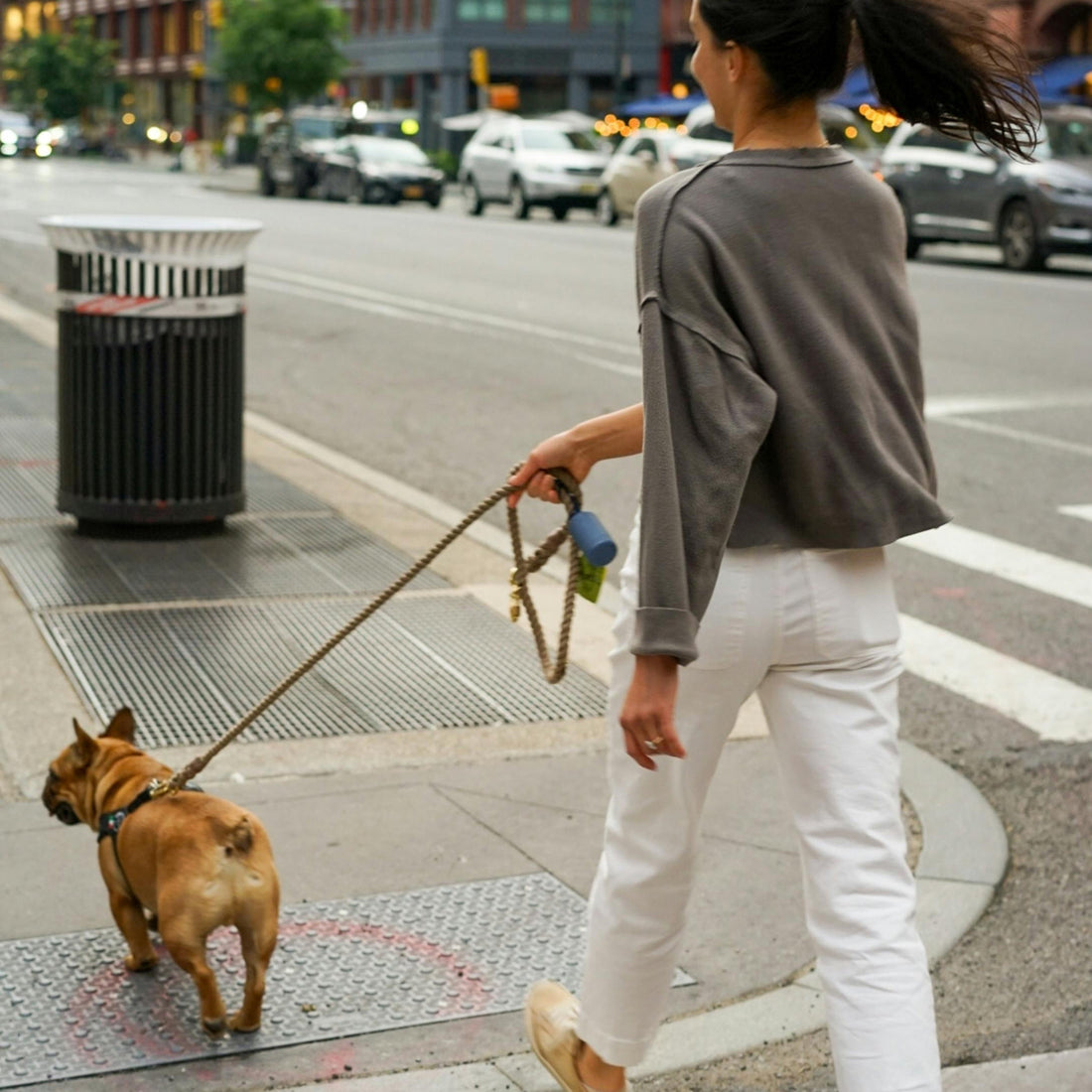
Daily Rhythms: How Routine Enhances Senior Dog Brain Function
Share
For senior dogs, consistency isn’t just comforting—it’s cognitive armor. Predictable daily rhythms can help aging brains stay sharp, calm, and confident.
What Science Says
Physical Activity Correlates With Better Memory
In senior companion dogs, higher levels of physical activity are linked to stronger working memory and cognitive performance. Wearable activity monitors showed that age-related increases in activity—especially in the evening—corresponded with better cognitive function in aging dogs.
Read the study
More Exercise Means Fewer Behavioral Problems
Data from over 10,000 dogs in the Dog Aging Project showed that dogs who get regular exercise exhibited fewer age-related behavioral issues and had lower risk of developing Canine Cognitive Dysfunction Syndrome (CCDS).
Read the study
Meal Timing Tied to Cognitive Health
Once-daily feeding schedules are associated with lower cognitive dysfunction scores and improved overall health indicators—including reduced gastrointestinal, dental, and orthopedic issues.
Read the study
Dogs Anticipate Routine Through Time-Awareness
Internal “timekeeping” helps dogs anticipate events like walks or meals, aligning with circadian rhythms. This internal clock, activated by consistent daily routines, enhances mental preparedness and reduces anxiety.
View the article
Why Routine Helps
Daily structure anchors memory and expectation—especially important for senior dogs whose cognitive bandwidth may be narrowing. Regular walks, fixed meal times, and scheduled rest provide predictable cues that enhance mental processing and reduce confusion. Coupling physical activity with temporal predictability aligns body rhythms with brain health, reinforcing stability and comfort.
Routine for Smarter Seniors: Daily Enrichment Planner
| TIME OF DAY | ACTIVITY | PURPOSE | BRAIN HEALTH BENEFIT |
|---|---|---|---|
| 7:00–8:00 AM | Morning Walk | Low-stress physical movement to start the day | Enhances circulation, reduces anxiety, supports circadian rhythm |
| 8:00–8:30 AM | Breakfast + Omega-3 Supplement | Balanced nutrition + DHA to fuel cognition | Supports memory, attention, and brain cell function |
| 9:00–9:30 AM | Scent Work or Puzzle Game | Gentle mental challenge | Strengthens problem-solving and neural stimulation |
| 10:00–11:00 AM | Rest Time | Consistent mid-morning nap | Consolidates memory and reduces overstimulation |
| 12:00–12:15 PM | Gentle Training/Clicker Session | Reinforce learned behaviors or teach something new | Builds neuroplasticity and engagement |
| 1:00–2:00 PM | Lunchtime Treat or Dental Chew | Chewing paired with light sensory activity | Supports oral health and calming focus |
| 2:00–3:30 PM | Nap or Calm Cuddle Time | Afternoon recharge | Supports emotional bonding and energy conservation |
| 4:00–4:30 PM | Indoor Enrichment or Interactive Toy | Engage brain without overexertion | Maintains attention and reduces restlessness |
| 5:00–6:00 PM | Evening Walk (short + familiar route) | Wind-down activity | Reinforces physical coordination and routine |
| 6:30–7:00 PM | Dinner + Cognitive Support Nutrients | Predictable feeding time | Synchronizes body clock and supports digestion |
| 7:30–8:00 PM | Soothing Sound or Smell Stimulation | Calming music or familiar scents | Supports mood and stress regulation |
| 8:30–9:00 PM | Bedtime Wind Down (Cuddle or Grooming) | End-of-day ritual | Signals rest, enhances emotional safety |
Why It Matters to Smarter Dog
At Smarter Dog, we understand that senior brains thrive in a predictable environment. Our brain-first principles guide not just products—but daily practices. From feed timing to movement and mental games, we help you build routines that nourish both body and mind.
Ready to Build Smart Routines?
Empower your senior pup's routine with science-backed rhythm and enrichment! Sign up for our newsletter and receive routine templates, early access to our brain-health products, and gentle strategies for supported aging.
